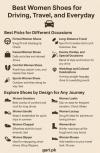Women’s Day: Challenges for Female Drivers in Pakistan

Women’s Day: Challenges for Female Drivers in Pakistan
Women in Pakistan face significant challenges such as societal expectations, harassment, and familial constraints when it comes to driving. While enhancements in training, law enforcement, and safety measures can provide support, female drivers also have a responsibility to drive safely and comply with traffic regulations. A joint effort from both the community and women themselves is crucial to create a more secure and inclusive driving atmosphere. As we celebrate Women’s Day, it’s vital to shed light on the key obstacles that female drivers encounter in Pakistan.
Societal Expectations
In many parts of Pakistan, there is a prevailing belief that driving is primarily a male activity. This societal pressure can lead to feelings of scrutiny and anxiety for women when they take the wheel. The fear of being judged as “incompetent drivers” or facing backlash from family and peers can be overwhelming. Overcoming these societal norms is a significant hurdle, especially when those around them discourage the pursuit of driving skills.
Road Harassment
Harassment on the road is a major issue for women drivers. They frequently face inappropriate comments, unwanted attention, and aggressive behavior from other motorists. Such experiences can create a stressful and unsafe environment, making many women hesitant to drive altogether. This cycle of intimidation can further discourage women from embracing their right to drive.
Limited Training Opportunities
Access to driving schools that are welcoming to female students is often scarce in various regions. Additionally, some families may be reluctant to allow women to learn from male instructors. As a result, women frequently have fewer chances to practice driving in busy traffic or master essential skills like parking. This reliance on female instructors can perpetuate the stereotype that women lack driving proficiency.
Familial Constraints
In certain families, the decision of who gets to drive is often made by male relatives. Women may find themselves needing to ask for permission each time they wish to drive, which can lead to reduced practice and increased anxiety. This limited opportunity to drive can hinder their confidence, reinforcing the stereotype that women are not capable drivers.
Safety Concerns
Concerns about personal safety also deter many women from driving. They often worry about experiencing car troubles in isolated areas or facing breakdowns at night. In regions with insufficient police presence, women may feel uncomfortable managing these risks alone. This lack of security often results in women only driving when absolutely necessary.
Responsible Driving Practices
Women drivers must also focus on their driving habits to challenge existing stereotypes. Unsafe behaviors, such as driving slowly in fast lanes, failing to maintain lane discipline, or changing lanes without signaling, can create hazardous situations. Additionally, panicking in heavy traffic or improperly riding scooters can lead to accidents and reinforce negative perceptions of women drivers.
It is common to observe female scooter riders occupying fast lanes and traveling at low speeds, which can frustrate other drivers. Such actions contribute to the stereotype that women are not skilled behind the wheel.
What are your thoughts on the challenges faced by female drivers in Pakistan? We encourage you to share your experiences and insights in the comments section.
Women drivers in Pakistan
Challenges faced by female drivers
Road safety for women
Harassment of women drivers
Driving schools for women
Societal pressure on women drivers
Womens Day
Empowering female drivers
Safe driving practices for women
Gender stereotypes in driving
« PREV POST
Honda Launches S7 Electric SUV
Honda Launches S7 Electric SUV
Related Auto News Updates
Latest Discussions
Comments












Add a Comment "Women’s Day: Challenges for Female Drivers in Pakistan"